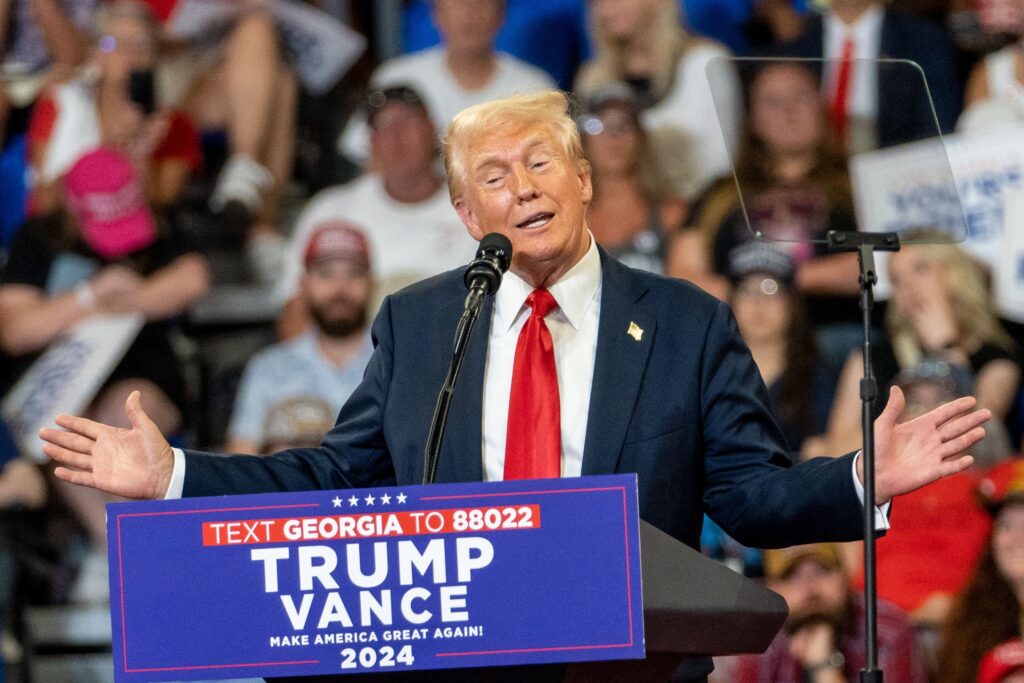Since Donald Trump’s inauguration, the global financial markets have shown clear trends. A review of major asset class movements over the past month reveals how Trump’s policies have influenced investor sentiment and market behavior. From his economic decisions to international talks, markets have responded with shifts in the value of the US dollar, stock prices, and commodities.
US Dollar Weakens After Initial Surge
Upon Trump’s election win on November 5, the US dollar initially strengthened. However, after his inauguration on January 20, the dollar’s value began to slip. The dollar index (DXY) fell by 2.2%, from above 109 to 107 by February 19.
Several factors contributed to the dollar’s decline. First, markets had already priced in expectations of a strong dollar, leading to profit-taking once Trump assumed office. Second, his decision to delay tariffs on Mexico, Canada, and other trading partners created uncertainty. Though Trump did announce a 25% tariff on steel and aluminum, the implementation of these tariffs, along with potential extensions to other sectors like cars, pharmaceuticals, and computer chips, would not take effect until April. For now, only the 10% duty on China has been active, leading to immediate retaliation from Beijing.
Another factor weighing on the dollar is the easing concerns about a sudden inflation spike. US government bond yields have dropped, reflecting investors’ reduced worries about inflation. The Federal Reserve’s indication of a potential slowdown in its efforts to reduce its balance sheet also contributed to the dollar’s weakness. The US government’s high levels of debt put pressure on borrowing costs, further dampening the dollar’s value.
Stock Markets Hit New Heights
Stock markets have performed well since Trump’s inauguration, with European markets taking the lead. The delay in imposing broad tariffs has likely boosted investor confidence. Key drivers of the stock market rally include expectations for lower global interest rates, enthusiasm for the artificial intelligence (AI) sector, and strong corporate earnings. Additionally, Trump’s peace talks with Russia have lifted European defense stocks.
Investors are optimistic about the European Central Bank (ECB) continuing to cut interest rates and provide special defense funding. Sectors such as finance, technology, and industry in Europe have indirectly benefitted from Trump’s policies. His investment in AI infrastructure, efforts to deregulate the banking sector, and push for increased defense spending in the European Union (EU) have contributed to widespread gains across multiple sectors.
Gold Prices Surge to New Heights
Gold has been one of the standout performers in the market, rising by 8% since Trump’s inauguration. The demand for safe-haven assets, like gold, has increased due to fears of a trade war and an economic slowdown. The weaker US dollar has also contributed to gold’s upward momentum.
Furthermore, Trump’s job cuts in the federal workforce, supported by tech giants like Elon Musk, may lead to higher unemployment and reduced consumer spending. These disruptions have raised inflation risks and longer-term growth concerns. Kyle Rodd, a senior market analyst at Capital.com, remarked, “These changes have disrupted markets, adding to inflation risks and raising doubts about future growth.”
Oil Prices Decline as Trump Pushes for Lower Energy Costs
Oil prices have seen a decline since Trump’s presidency began. Brent crude futures have dropped by 6.6%, while West Texas Intermediate (WTI) futures have fallen by 7.8%. This aligns with Trump’s push to lower global crude prices by encouraging more drilling under his “Drill, baby, drill” slogan.
Trump’s peace talks with Russia may also lead to easing sanctions on Russian oil exports. His view is that falling energy prices could offset inflation caused by higher tariffs. However, the effectiveness of this approach remains uncertain as energy markets continue to fluctuate.
Bitcoin Faces Uncertainty Under Trump’s Administration
Bitcoin prices have dipped by 4% since Trump took office. Initially, there was optimism surrounding his goal to make the US a “crypto capital.” However, his administration has only promised to explore a “national digital asset stockpile” with no clear plan for a Bitcoin reserve. This lack of clarity has likely disappointed many cryptocurrency investors.
Despite the rocky start, Trump’s first month in office has clearly left its mark on global markets. The dollar weakened, while stock markets surged and gold reached new heights. Oil prices dropped, and Bitcoin showed mixed results.
Investors will continue to monitor how Trump’s policies evolve, as these initial market trends may set the tone for the future of the US economy and global financial markets.
For more news updates on government policies and global trades, tune into New York Mirror.


